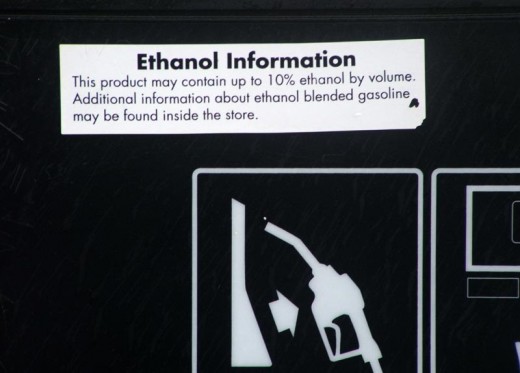Types Of Biofuel
Ever since their discovery, the fossil fuels have benefited the man and have made them prosper and develop. These fuels that are extracted from the decomposed fossils, millions of years old, buried in the depths of the earth, are the reason why we are living today. Imagine a life without coal, gas and oil.
It’s impossible now to live without these resources. But the sad part is that these fuels are non renewable resources and we will run out of them one day, in fact, we already are. With the increase in population, which has taken place drastically over the centuries, the demand of these fuels has also increased.
This increase of demand has lead to much more use of these fuels, that has made the earths fuel bank half empty, and with the rapid increase of their demand, it will soon be completely emptied. It is predicted that by 2050 the demand of fuels will be the double of the fuel demand today and would triple by the end of the century and if the process of excess fossil fuel continues, we will be left with nothing within few years.

The Biofuels
Now that it’s known that we will run out of these fuels one day, steps are being taken to preserve these fuels by making their alternative sources. The best replacement for the fossil fuels is the biofuels.
The biofuels are the fuels that are obtained from or by the action of any biomass. They are mostly obtained by the action of bacteria and different microbes on any organic matter however some fuel is also directly drawn from plants and can be used by man as the replacement of natural fossil fuels.

Biofuel Technology
- All About Bio-Fuel
ALL fossil fuels ultimately owe their origin to biomass. The term "bio fuel", in its current context, is generally used to describe secondary renewable fuels which are obtained by thermo chemical processing.
Fuel Cell Technology
- Hydrogen Storage And Fuel Cell Technology
To start with the explantion of hydrogen storage and fuel cell technology, lets first of all discuss, hydrogen energy storage (emphasising the latest technological advances).
Different Biofuels
There are three main types of biofuels. Thee biofuels are the perfect alternatives of the fossil fuels, other than that the production of these fuels does not have any harmful effect on the environment. Following are the three types of biofuels.
1. Biodiesel
The biodiesel is the best alternative of the usual diesel used in vehicles. It is produced by the decomposition of vegetable oils obtained from plants or are converted synthetically. The biodiesels have the same composition is just like mineral diesel.
It is observed that people who use biodiesels in their diesel engines do not face any difficulty and their engine runs as smooth as before and in some cases even better. Many vehicle manufacturers now recommend the use of a mixture of 5% biodiesel mixed with mineral diesel. A 5% biodiesel blend is generally used at gas stations in Europe.
2. Bioalcohols
Bioalcohols are another type of biofuels that are produced by the action of certain aerobic and anaerobic bacteria.
The most commonly produced bioalcohols are ethanol, butanol and propanol. Amongst these ethanol is the most commonly used bioalcohol, butanol is used comparatively less and propanol is used rarely.


Butanol
Biobutanol is a strong organic alcohol and it can be used in engines as a direct replacement of gasoline in vehicle engines.
In few cases where it is used, a much better working of engine is observed. Butanol is a strong biofuel and can be very useful however its use on a common scale is yet to be observed and adopted.
Ethanol
Ethanol is the most commonly used biofuel in the world particularly in Brazil. It is used in engines as a substitute for gasoline. But mostly a mixture to ethanol mixed with gasoline in any ratio is used in the engines.
A mixture of gasoline and ethanol consisting 15% bioethanol can be used in any contemporary automobile petrol engine. This mixture is highly advisable for any automobile engine as the mixture of ethanol and gasoline has a much better octave and can make the engine run with much more efficiency.
High Octane Efficient Fuels
- Fuels With High Octane Number
The quality of a fuel is measured with its 'octane number'. A good quality fuel has a good octane number. Octane number measures whether petrol is likely to cause knock in an engine.

3. Biogases
Biogases are produced by the action of certain anaerobic bacteria. The anaerobic action of these bacteria results in the biogases that are now used as a replacement of commonly used fossil gas. The gas that is now most commonly produced as a biogas is methane.
During the production of these biogases a solid by-product called digestate is formed, it can also be used as fertilizer.
The Syngas is a special type of biogas which is produced as result of combined processes of gasification, combustion and pyrolyis. The Syngas can be used in internal combustion engines and are also used to create hydrogen and methanol.
The production of these biofuels is a great step towards making the earth again a better place. The of these biofuels will not only compensate the loss of naturally occurring fossil fuels but will also reduce the pollution in environment and will slow down the rapidly increasing green house effect in the environment.
Innovative Method To Generate Green Energy
- Generating Electricity From Body Heat
Scientific innovations are not restricted to creating useful gadgets or machines. - Generating Electricity With Hot Dry Rock Technology
NATURE has been generous enough to provide us with all that we need for a better survival.







